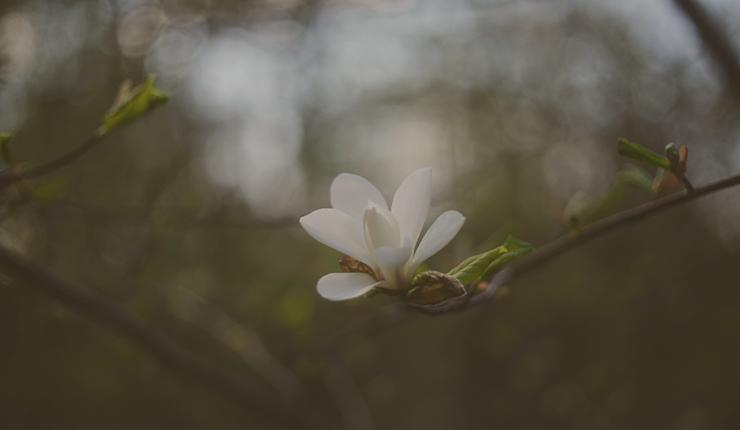I never thought about how the phrase “late bloomer” applied to flowers until I started a garden. The original meaning of this expression dawned on me one day in late fall as I drove up to my house. As I pulled into the driveway, there it was. A full six weeks after the rest of my hibiscus plant had bloomed was a huge, beautiful flower. I was delighted. “Oh!” I thought. “A late bloomer!” It was at that moment that the original meaning of the phrase dawned on me, and I felt a little sheepish that I had never thought it through before.
But I was also surprised because I felt so happy with this unexpected bloom, and when we refer to people as “late bloomers,” it tends to have a negative connotation. If someone is a late bloomer, it carries the sense that they should have already grown or developed in a certain area. And there’s been some anxiety along the way because they have exceeded the time it should have taken to reach some milestone. Parents are especially familiar with this anxiety.
- “Why is this area of growth taking longer for my child?
- “Will this development level ever be reached?”
- “What are the implications, and even consequences, that this growth is extending beyond a ‘normal’ timeline?”
Though we often relegate our use of “late bloomer” to describe a child, the anxieties remind me of ones I face myself and hear from those I counsel. It’s mostly anxiety about spiritual growth and development.
- “Why is this area of spiritual growth taking longer for me?”
- “Will I ever develop the maturity that I long to have?”
- “What are the implications, and even consequences, that this growth is so challenging for me?”
Maybe these anxieties sound familiar to you, too, as you think about your struggles with certain sins, unhelpful patterns of relating, or bad habits that impact your spiritual vitality. If you do have these anxieties, then it is probably also true that you feel some distress about why it is so hard for you. You want to grow. You want to be freed from a besetting struggle. You want something good, something God-honoring, but the struggle is always with you, no matter how hard you have tried to jettison it from your life—through prayer, through repentance, through all manner of very sincere efforts. Discouragement sets in. Shame creeps in. Despair may soon follow.
In these low moments, I find comfort that the pace of my growth is not entirely up to me. Yes, I am to run this race with endurance. I am to press on. But the Lord is the author and perfecter of my faith (Heb 12:2), and with that truth comes the understanding that he, too, is involved in the pace of my growth. He founded my faith, and he is perfecting my faith. And somehow that has to become good news to me when I am discouraged that my growth is slower than I’d like it to be.
The apostle Paul found encouragement in it. He was “confident” that the good work that God had begun in the Philippians would be carried to its completion (Phil 1:6). His confidence was in the Lord completing the work. If our confidence was in ourselves to bring our growth to its completion, we’d all be disappointed in the end. We wouldn’t be able to carry it out; the ability is just not in us. Our growth is God’s work. He started it and he will finish it. It’s his work—in his timing.
In the meantime, that means all of us will feel like late bloomers in certain seasons. Though that feels distressing, we can take comfort that our Father is a gardener (John 15:1). And a gardener delights in his late bloomers. I had never thought about flowers as late bloomers because I didn’t notice any before I had my own garden. But when I came across that late bloomer on a November day, it was in my garden. I had personally encouraged the progress of all my plants by my care and attention to them. I had invested in them. Daily, I had tended to each of them. And so this late bloomer became my delight. I could enjoy its beauty uniquely because I had tracked its growth from start to finish.
There’s an analogy in that for you to hear.
Though you are a late bloomer, you belong to a Gardener who encourages your progress daily. You are his late bloomer. He is utterly invested in you. He is lovingly tending to your growth. He is pleased with your progress. And it’s all leading up to a day when your growth will be complete. Then, you will discover, and fully know, just how much he has always delighted in you. You will have bloomed, and on that day, all of us will recognize the wisdom of the Gardener who makes everything beautiful in his time.
•
Interested in learning more about spiritual maturity for every age? Purchase the full audio download for the 2025 CCEF National Conference: To Live Is Christ: The Life & Ministry of Paul.




